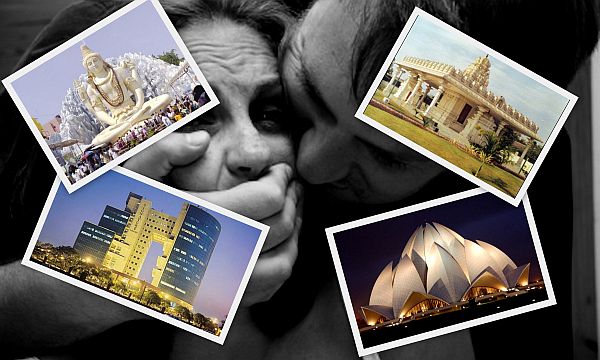The National Capital Region (NCR) of India comprising of New Delhi, Gurgaon, Faridabad, and Ghaziabad is rapidly gaining notoriety as the rape capital of the world. For every four reported rapes in the nation, one is from the NCR region. The capital is now believed to be the most unsafe city for women. Reports of rape include those of minors and even the elderly. The latest reports from the National Crime Records Bureau of India reveals a nearly 10% rise in rapes in the NCR region from 2008 to 2010. New Delhi Police figures show that a woman is raped in New Delhi every 18 hours. And these are the figures of reported crimes only. A very large percentage of rapes and crimes against women go unreported due to the social ramifications, personal embarrassment and the sheer harassment of seeking redress through our criminal justice system.

Blaming: An excuse for inaction?
While the government and law enforcement agencies have taken cognizance of the escalating problem of violence against women, the initiatives undertaken by them have proved to have a little impact on the incidence of rape. Instead of tightening security, speeding up investigations and chargesheeting, the officials have made more news for trying to pass the buck on. While Delhi Chief Minister, Sheila Dikshit blamed the rising migrant population for increasing incidence of rape, the Noida police went public and blamed a rape victim for inviting the crime and disclosed her name and identity to the media. These are the indicators of how insensitive and misinformed our public servants are to the key issues of violence against women. Matching the apathy of the government and law enforcement is the moral police who has declared that crime against women are provoked by the behavior of women themselves.
The Police has more important things to do!
One of the problems peculiar to the NCR is the fact that in spite of having the best equipped law enforcement forces in the country, most of the police force is engaged in providing security cover to politicians and VIPs. As a result, it is the safety of the common citizen and especially women, that is compromised the most. Investigations are slow as allocation of manpower to crimes against ordinary citizens is low on the priority of the police force of the capital. Added to this is the large size of the National Capital Region and the fact that development is frequently spaced out geographically, leading to large stretches of desolate and difficult-to-patrol roads. The way the NCR has been carved out of neighboring states also results in a porous border which makes it easier for the perpetrators and suspects to get away.
Each one of us is the solution!
It is easy for commentators to point a finger at authorities and the lack of effective measures to address this situation in the NCR. At the root of it, it still remains a social problem, one of acknowledging and addressing the lack of respect towards women and the right to their personal space. The blatant objectification of women as sex ‘objects’ who exist only for the gratification of male sexual desire is a malaise that has to be attacked at the very root. Male chauvinism is often transmitted in a subtle manner, especially among the educated and the city-bred. The core solution to the problem lies in the family, in parenting and in the education system.
Children have to be taught from an early age that gender discrimination is a crime against humanity, since a girl who is subjected to gender discrimination at an early age is incapable of questioning it and grows up to perpetuate the myth. Young girls and women need to be empowered by parents, educators and the legal system to stand up for their rights. The media needs to stop sensationalizing sex crimes and treat them with the sensitivity, they deserve. Greater publicity needs to be given to the punishment that is meted out to rapists and molesters. The entertainment industry needs to come forward and portray women as equal to men, and not just a glamorous add-on. Women-centric films like those we have seen in the recent past need to be encouraged and promoted.
The mindset of men who believe that it is okay, and even pleasurable to rape a woman, will not change overnight. The laws against similar crimes in other nations are far ahead of the laws in our nation. Several nations like Canada, New Zealand, and United States have done away with the archaic definitions of rape and replaced it with the concepts of sexual aggression, sexual violations and sexual assault. Punishment too, is harsher in other nations, with death and chemical castration being acceptable to many societies. The question is not so much of what constitutes adequate law or punishment for rape, but what society finds unacceptable in gender biased behaviors and how sacred it holds personal freedom and space, regardless of gender.
It is sad that instead of being labeled a capital of culture or heritage, the capital region is today branded as the rape capital. It is sad that every SUV with tinted glasses is looked at with fear and loathing. It is sad that the media is able to use adjectives to describe men in the NCR that they would not use for men from other cities. It is sad that public servants believe that it is the dress and the lifestyle of the women that provoke rapists to rape. And, it is sad that in a country that has seen the likes of Rani Laxmibai, Sarojini Naidu, Indira Gandhi and Kiran Bedi, women have to live in fear, that too, in the capital of the nation.



